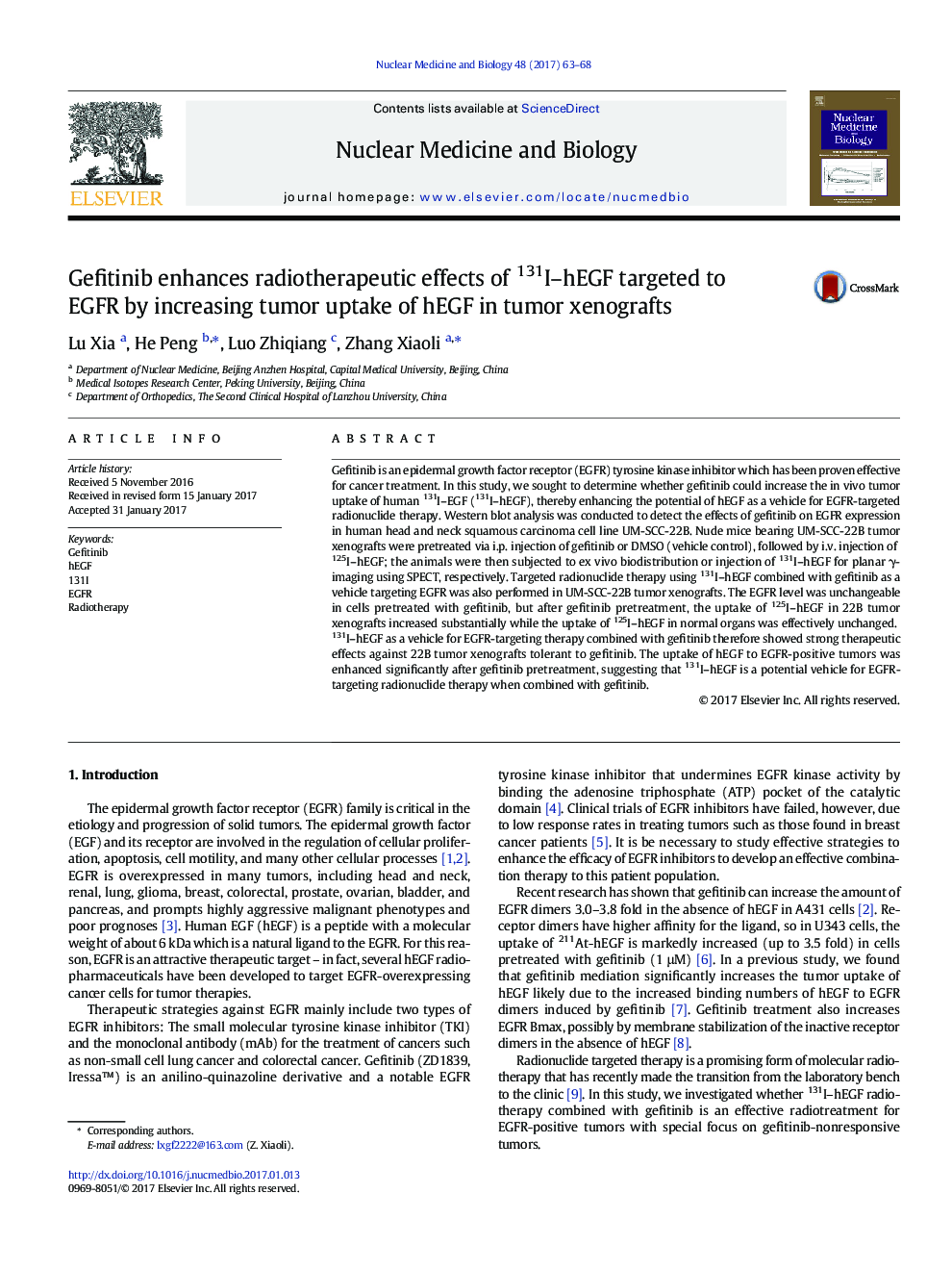| Article ID | Journal | Published Year | Pages | File Type |
|---|---|---|---|---|
| 5528986 | Nuclear Medicine and Biology | 2017 | 6 Pages |
Gefitinib is an epidermal growth factor receptor (EGFR) tyrosine kinase inhibitor which has been proven effective for cancer treatment. In this study, we sought to determine whether gefitinib could increase the in vivo tumor uptake of human 131I-EGF (131I-hEGF), thereby enhancing the potential of hEGF as a vehicle for EGFR-targeted radionuclide therapy. Western blot analysis was conducted to detect the effects of gefitinib on EGFR expression in human head and neck squamous carcinoma cell line UM-SCC-22B. Nude mice bearing UM-SCC-22B tumor xenografts were pretreated via i.p. injection of gefitinib or DMSO (vehicle control), followed by i.v. injection of 125I-hEGF; the animals were then subjected to ex vivo biodistribution or injection of 131I-hEGF for planar γ-imaging using SPECT, respectively. Targeted radionuclide therapy using 131I-hEGF combined with gefitinib as a vehicle targeting EGFR was also performed in UM-SCC-22B tumor xenografts. The EGFR level was unchangeable in cells pretreated with gefitinib, but after gefitinib pretreatment, the uptake of 125I-hEGF in 22B tumor xenografts increased substantially while the uptake of 125I-hEGF in normal organs was effectively unchanged. 131I-hEGF as a vehicle for EGFR-targeting therapy combined with gefitinib therefore showed strong therapeutic effects against 22B tumor xenografts tolerant to gefitinib. The uptake of hEGF to EGFR-positive tumors was enhanced significantly after gefitinib pretreatment, suggesting that 131I-hEGF is a potential vehicle for EGFR-targeting radionuclide therapy when combined with gefitinib.
